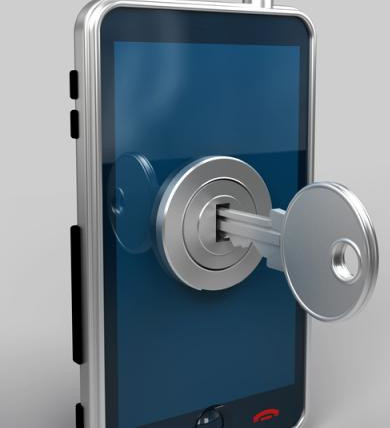Laptop/Computer and Mobile Safety Guidelines

- 5 Minutes Read -
When it comes to keeping the data on your computer safe, hackers and cyber attacks are a constant source of worry. You know how to protect yourself from viruses and ransomware, as well as how to follow internet safety guidelines, but how about your computer? With small computers and a lot of data stored in the cloud, it's easy to have your computer or your data stolen, so make sure you follow these precautions.
Mobile devices today are as powerful and connected as any computer. Smartphones and tablets can be used for more than just text messaging and photo taking. They can also be used to stream video, shop, and navigate to a location. There's an app for almost everything nowadays. To ensure your safety and security, take the same precautions on your mobile device as you would on your computer. Here are some important highlights to get you started on this topic.
1. Use a Password at All Times
Never let your computer remember or generate a password for you. Every time you log on to your computer, type in your password so that if someone steals it, they won't have unrestricted access. Don't write down your passwords and keep them near your computer, and never leave your password blank; it's like hanging a key to the house on the locked doorknob. You can also add a password to your screensaver to add an extra layer of security.
Make a strong password.
By being inventive, you can make it difficult for a thief to figure out your password.
Choose something that will be easy to remember but does not include obvious words or dates, such as family or pet names, birthdays, or addresses.
Make it at least eight characters long and include a mix of upper and lowercase letters, numbers, and special characters.
Also do change the password periodically like every 3 months.
2. Make use of a self-contained alarm system
A self-contained alarm adheres to a computer and a cord or cable with adhesive. If someone tries to disconnect the cable while the alarm is activated, the alarm will sound a loud warning to everyone nearby. Some alarms blare for hours and can only be turned off by entering a special code. Thieves dislike attracting attention, so they may abandon the computer if it begins to make a loud noise.
3. Turn on the Fingerprint Lock
A fingerprint lock is a device that plugs into a USB port on your computer and allows you to gain access by placing your finger on it. You can authorize multiple fingerprints (which is useful for family computers) and set up fingerprint locks to provide passwords for various online accounts.
4. Take advantage of laptop tracking
Many laptops can send a signal over WiFi, allowing you to track them if they go missing. You can also buy software or apps that will notify authorities if your computer is stolen. When a computer is unplugged, it stops sending WiFi signals, so this may not work as well.
5. Make sure it's locked
Despite the fact that this may seem self-evident, many people believe that because they live in a safe town, things like stolen computers don't happen - until they do. If a thief is unable to gain entry to your home, they may move on to a less difficult target with unlocked doors. Stolen computers can also be the result of a quarrel with a family member, friend, or roommate, so locking the door to the room where you keep the computer when it's not in use can help prevent an unexpected loss from a previously trusted acquaintance.
- A physical lock can be a great deterrent to a thief who just wants to grab your laptop and run, or who doesn't want to waste time trying to break a lock. A metal cable with a loop is usually attached to an anchor point (something difficult to move, such as a desk, wall, or floor) and then to a loop on the computer. To secure the computer to something solid, it works similarly to a bike lock. Some products include an adhesive anchor, which while not as strong as a built-in anchor point, may be enough to deter a quick thief.
- A lockdown plate can also be bolted to your computer and then to something solid, such as a heavy desk. Lockdown plates may also include a lock that must be unlocked with a key. Taking a computer that is bolted down with a lockdown plate is extremely difficult.
- Locking enclosures, which come in a variety of sizes and can secure anything from a small PC tower to a full system that includes a tower, monitor, keyboard, mouse, and printer, are another option
6. Configure Firewall
You should always use a firewall when connecting to the internet. If you haven't authorized outside communication, a firewall can block it, as well as prevent data from entering or leaving the computer without your permission. Hardware and software firewalls are available, and both can be used at the same time.
7. Maintain Anonymity Online
One of the most important things to keep in mind when using a digital device is to keep your online identity hidden. You must maintain your anonymity online and should not reveal any banking information, address, phone numbers, pin code, or other sensitive information.
This safeguards your device against cyber-attacks and other potential threats.
8. Backup your data
Backups may not appear to be a safe way to keep your computer safe, but if something goes wrong with it or you have a security issue, you can quickly recover your data if you have a recent backup. Hard drives fail, computers are stolen, and accounts are hacked, but if you have a backup, you can at the very least recover all of your data.
9. Update your software as needed
Anti-virus software was developed to prevent viruses and malware from infecting your computer system, as well as to detect and remove them from infected systems. Virus protection, in particular, should always be kept up to date. Because ransomware and viruses are constantly changing how they enter and attack your data, software updates are released on a regular basis to protect you from the latest threats. Patches, updates, and even upgrades are released to fix software and protect against new vulnerabilities, so make sure you have the most recent version installed to ensure the best protection for your data.
10. Protect Your Private Information by Encrypting Your Files
Encryption scrambles file contents so that only those with the correct encryption key can decode them. If someone gains access to your computer and the files are not encrypted, they can be read easily. Many encryption services and software are available, and some USB drives automatically encrypt files during backups.
Conclusion
More than just a device for entertainment, the laptop mobile device or PC's has become an integral part of our daily lives. Along with fulfilling our entertainment needs, it also assists us in managing sensitive financial information and providing a sense of each task, such as communicating with a loved one who lives far away, and it also provides solutions through a quick Google search.
It is important to maintain the security of these devices as cyber-related crimes are on the rise.
Thanks for reading!
